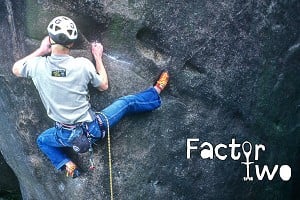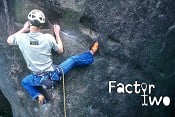In reply to Gone:
I wouldn't give up my boots for anything. I move faster and more confidently on typical terrain in boots, plus they have saved me from an injury or two on occasion.
But I have been around in this game for a lot longer than you would think. I know situations, have friends who wear less supportive footwear in the hills and have done so myself (and will again). Everyone I know who does this is balancing the chance of a small injury in a bad environment (which goes wrong quickly) over the need for speed, kit volume reduction or the delicate touch.
I some cases the objective, space in your sac or the range of terrain supports the use of shoes however, the line between this and boots is personal and site specific. This means that a responsible person or group cannot offer pubic advice saying that it is okay to be in these environments in potentially inadequate footwear.
Good, well fitted, boots offer better support than shoes (a few days doing my last job will convince any nae sayer) but do you need that support? Do you need that speed, should you not just get fitter?









